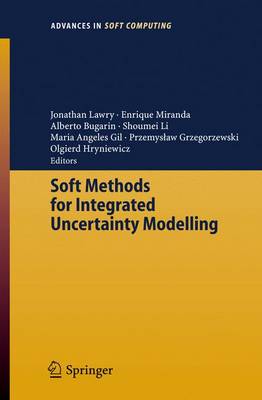The idea of soft computing emerged in the early 1990s from the fuzzy systems c- munity, and refers to an understanding that the uncertainty, imprecision and ig- rance present in a problem should be explicitly represented and possibly even - ploited rather than either eliminated or ignored in computations. For instance, Zadeh de?ned 'Soft Computing' as follows: Soft computing differs from conventional (hard) computing in that, unlike hard computing, it is tolerant of imprecision, uncertainty and partial truth. In effect, the role model for soft computing is the human mind. Recently soft computing has, to some extent, become synonymous with a hybrid approach combining AI techniques including fuzzy systems, neural networks, and biologically inspired methods such as genetic algorithms. Here, however, we adopt a more straightforward de?nition consistent with the original concept. Hence, soft methods are understood as those uncertainty formalisms not part of mainstream s- tistics and probability theory which have typically been developed within the AI and decisionanalysiscommunity.Thesearemathematicallysounduncertaintymodelling methodologies which are complementary to conventional statistics and probability theory.
- ISBN10 3540347771
- ISBN13 9783540347774
- Publish Date December 2006 (first published 1 January 2006)
- Publish Status Active
- Publish Country DE
- Publisher Springer-Verlag Berlin and Heidelberg GmbH & Co. KG
- Imprint Springer-Verlag Berlin and Heidelberg GmbH & Co. K
- Edition New ed.
- Format eBook
- Pages 397
- Language English
